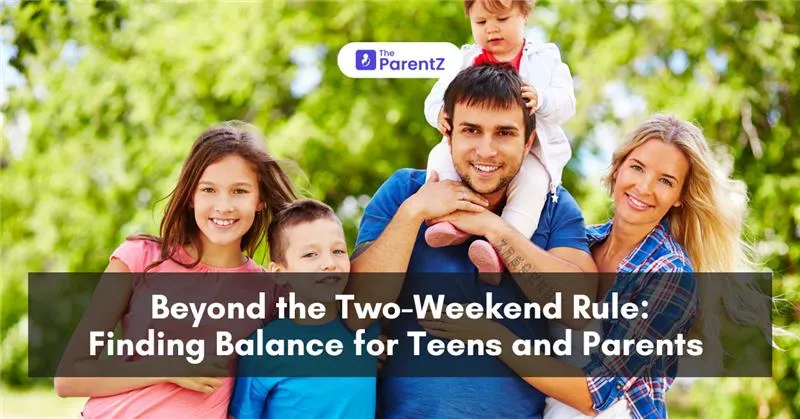Co-parenting after a separation or divorce often comes with a whole new set of rules. However, one of the most common, the two-weekend rule, is where one parent gets custody during the week while the other gets visits on alternating weekends. While on paper that looks fair, in reality, not so much!
In fact, for parents, it can feel like they are either missing out or playing catch-up with their child’s life. In short, it's basically two homes, two sets of rules, and not enough stability concept.
Read below this article to figure out how you go beyond the two-weekend rule and create a better balance for teens and parents.
The Two-Weekend Rule: Why It Feels Unfair?
The traditional model of custody—one parent during the week, the other on alternating weekends. This approach often leaves one parent feeling like a visitor rather than an equal parent.
Did you know that, as per research, kids raised in shared custody typically have better mental health and academic performance compared to those who spend the majority of their time with just one parent? That’s because consistent relationships with both parents provide emotional stability.
Furthermore, parents often feel guilty enforcing rigid custody routines. Meanwhile, teens just want some control over where they spend their time.
Teens Need Stability Too
At this stage, the truth is quality time matters more than quantity. Did you know kids who are raised in high-conflict co-parenting situations have higher chances to struggle with anxiety and depression at some stage in their life?
It may be the two-weekend rule that’s causing stress. It’s perhaps time to reconsider your approach. The best approach is to find ways to bond that do not require a full weekend together, from evening hangouts to weekday dinners.
After all, it's more about being equally present rather than fighting for equal time.
Flexibility Is Your Secret to Better Co-Parenting
When it comes to co-parenting, the 50/50 schedule is much better than the two-weekend rule. In simple words, it means Monday-Wednesday with one parent, Thursday-Sunday with the other. Furthermore, midweek hangouts can also help maintain the bond when paired with open communication.
However, if seeing them midweek isn't readily possible, FaceTime, texts, and virtual connection can help bridge that communication gap.
Conclusion
The truth is—the two-weekend rule was initially designed for structure. However, the other reality is—not every parenting style will fit every family—especially when teens are there too. In the end, the focus must not be on equal time but on equal involvement. After all, parenting is never about time slots but about connection.





Be the first one to comment on this story.